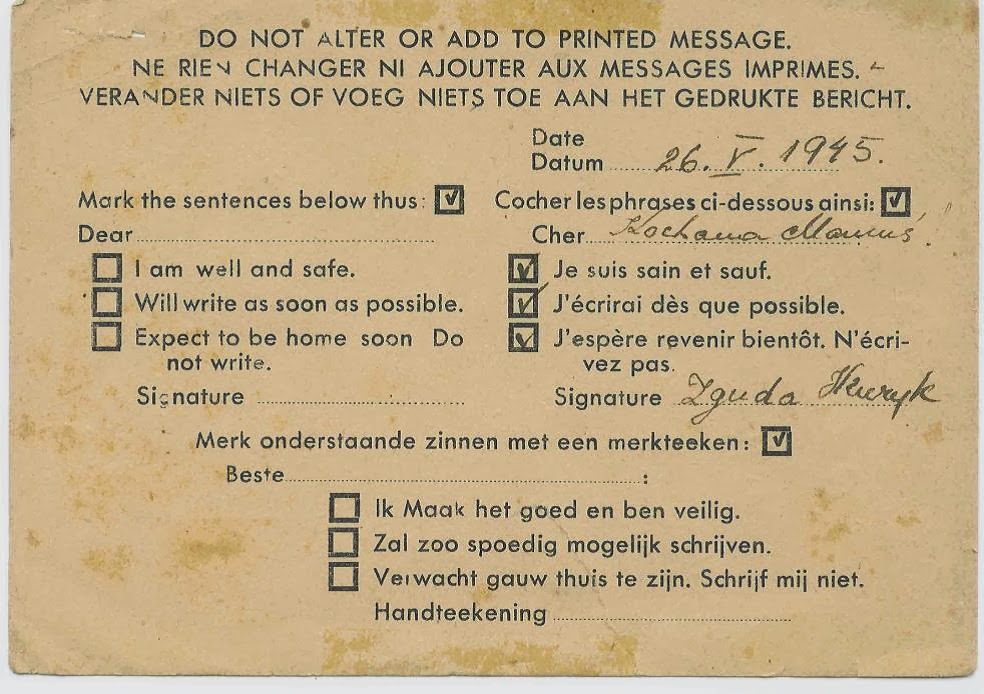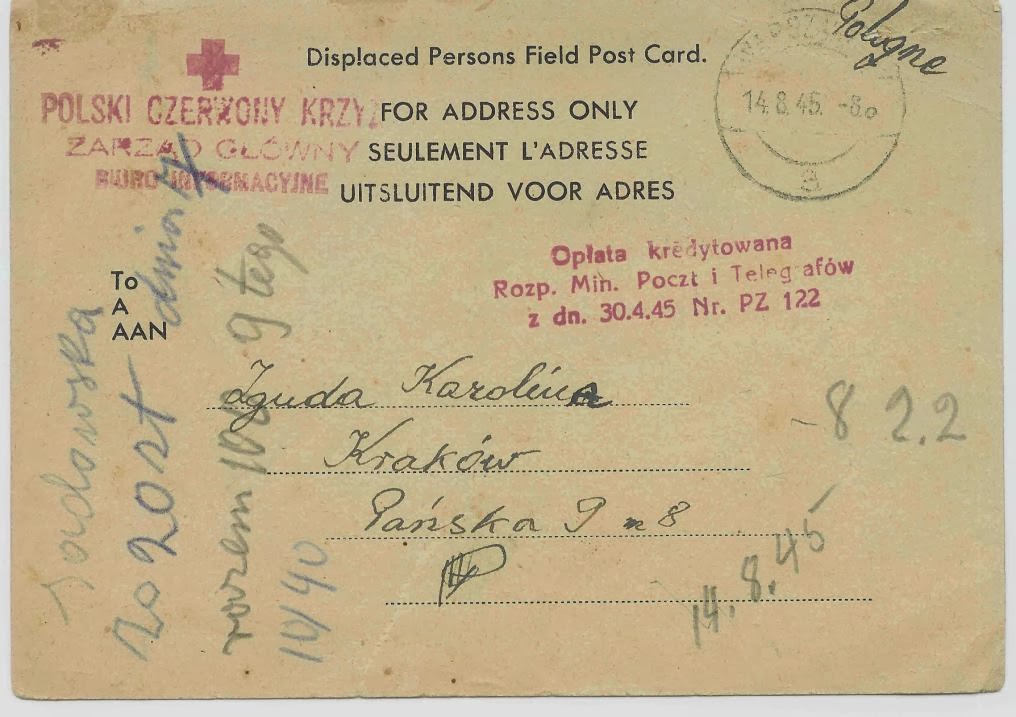 I was sent to two different camps for displaced persons. I still had a very difficult time breathing, but the Americans didn’t have an X-rays at the time. They diagnosed me with the paratyphoid fever.
I was sent to two different camps for displaced persons. I still had a very difficult time breathing, but the Americans didn’t have an X-rays at the time. They diagnosed me with the paratyphoid fever.
 After Dachau I went to Freimann (known as Schwabing – Freimann today) where the SS had their housing. The SS housing was turned into housing for prisoners who were ambulatory. Freimann was very nice – maybe two or three thousand people lived there. We had better food, and there was an American army major who spoke German.
After Dachau I went to Freimann (known as Schwabing – Freimann today) where the SS had their housing. The SS housing was turned into housing for prisoners who were ambulatory. Freimann was very nice – maybe two or three thousand people lived there. We had better food, and there was an American army major who spoke German. He was American, but of German heritage, and assumed Germans did everything for a reason. So he assumed we were criminals. Why else would we have been in the camps? So they locked us up like criminals in these quarters behind a 10-foot high fence.
But we had been through too much to be humiliated by the American major and two brothers learned to go through the fence and managed to smuggle in a sheep. If we had sheep we’d have mutton.
I was still not too good. I had cured my fever and paratyphoid (with the chlorine water) but all this combination of medicines and weather and I got a pleurisy, the water in my lungs. I could hardly breathe, and could barely walk. I was so miserable; I cannot live like this. They didn’t have X-rays in the camp. And while guys are wheeling and dealing for girls, I am lying on the floor dying. About a week I go on like this.
About this time I heard they had a few tickets for transport to Poland. I went for those; I wanted to see my mother before I died. They were throwing the tickets from the roof. There were plenty of guys who wanted to go, but there were only 80 tickets. I was lucky enough to get one.
At that time I was anxious, so I organized about five green SS uniforms. I took these with me as a bundle. I don’t know why I did that, but I did. So they loaded me on the train with my bundle, and the train went through Czechoslovakia all the way to Krakow. With my bundle I had something under my head. Nobody stole them, people just laughed at me. But later I gave these uniforms to the theatre in Krakow and they were grateful for my bundle.
Czech is a very nice country, very neat. As we’re going through, we saw plenty of apple trees with apples on them. We forced them to stop the train (I didn’t ask Henry how they forced them to stop the train) Why? Because we were hungry. When the train stopped we all ran for the apples and brought them back. Those apples helped us with food to last the trip.
At the next stop, everyone was asked to give their name, and we all got 100 zlotys. Before the war that was a lot of money. Then it was “Good bye, good luck. Get on the train to Krakow.” When we arrived in Krakow we saw guys selling pickles on the street. I went up to one and bought a pickle. That pickle cost me 80 zlotys. I paid it but now I only had 20 zlotys left.
Next I went to visit my mother’s brother. They didn’t recognize me, but they gave me food. From there I hurried (even though I was breathing hard from the pleurisy) to see my mother before I died.
I’ll never forget when my mother opened the door. She looked at me and said ‘Who are you?
I said “Henui.”
“No, no way. Henui died in the camps. The Krakow paper even reported that Kasimir Szeleste and Henry Zguda, famous swimmers from Krakow, died in the concentration camps.” – Henry Zguda
Note – Refugee card is dated “26 – V – 1945.” I read this as May 26, 1945. I learned that in Polish they often abbreviate months by their Roman numeral equivalent.
Note – Refugee card is dated “26 – V – 1945.” I read this as May 26, 1945. I learned that in Polish they often abbreviate months by their Roman numeral equivalent.
